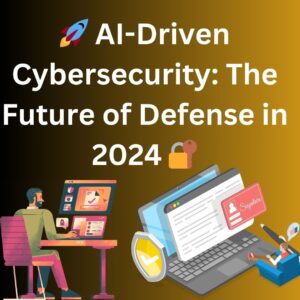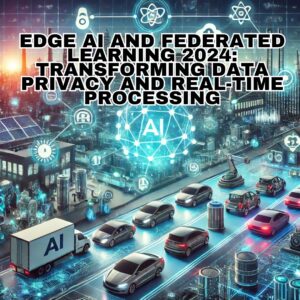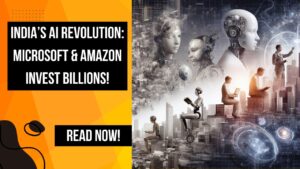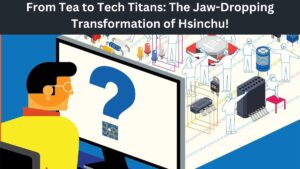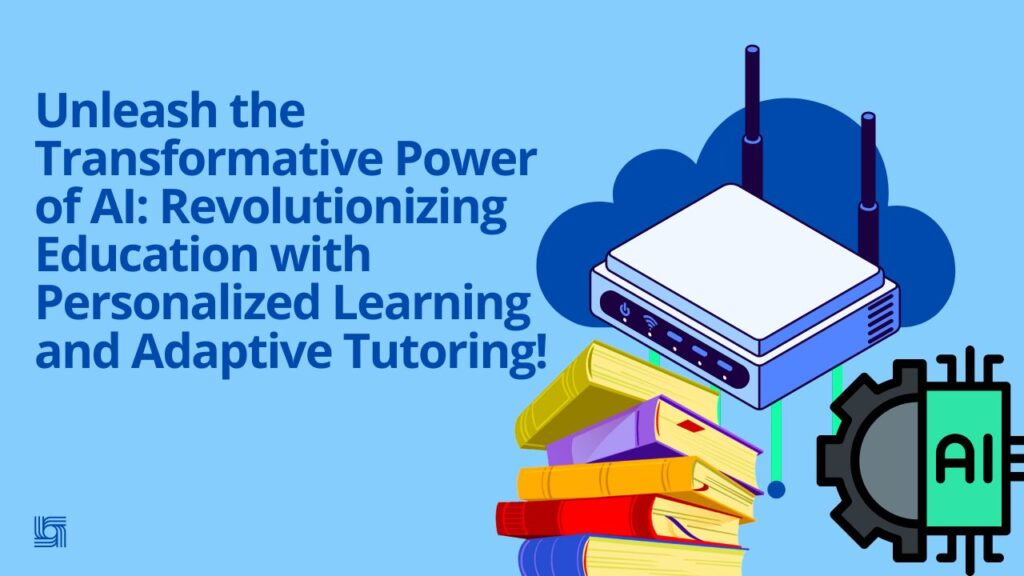
In the dynamic landscape of education, Artificial Intelligence (AI) is increasingly becoming a driving force, ushering in a new era of personalized learning and instructional innovation. As educators and learners alike embrace the opportunities presented by AI, the traditional classroom is undergoing a profound transformation. From adaptive learning platforms to intelligent tutoring systems, AI is revolutionizing how knowledge is imparted, absorbed, and applied. This article explores the myriad applications of AI in education, examining its impact on teaching methodologies, student engagement, and the future of learning.
Introduction: The Promise of AI in Education
The integration of AI into education holds immense promise, offering unprecedented opportunities to enhance the teaching and learning experience. By leveraging AI-powered technologies, educators can tailor instruction to the individual needs and learning styles of students, fostering greater engagement, mastery, and retention of content. Moreover, AI enables the analysis of vast amounts of educational data, providing valuable insights into student progress, performance trends, and areas for improvement. This article explores how AI is transforming education, empowering educators and learners to unlock new possibilities in teaching and learning.
AI-Powered Adaptive Learning Platforms
Adaptive learning platforms represent one of the most significant applications of AI in education, offering personalized learning experiences tailored to the unique needs and abilities of each student. These platforms use AI algorithms to assess students’ knowledge, skills, and learning preferences, dynamically adjusting the content and pace of instruction to optimize learning outcomes. By providing targeted feedback, adaptive learning platforms empower students to progress at their own pace, filling knowledge gaps and reinforcing mastery of key concepts. Additionally, these platforms enable educators to monitor student progress in real-time, identify areas of difficulty, and intervene as needed to provide additional support.
Intelligent Tutoring Systems
Intelligent tutoring systems (ITS) leverage AI technology to provide personalized, one-on-one instruction to students, simulating the experience of working with a human tutor. These systems analyze student responses to diagnostic assessments and exercises, identifying misconceptions, errors, and areas of weakness. Based on this analysis, ITS generate tailored learning pathways and instructional materials designed to address each student’s specific learning needs. By providing immediate feedback and adaptive support, ITS enhance student engagement, motivation, and learning outcomes. Moreover, these systems enable educators to deliver differentiated instruction at scale, effectively addressing the diverse needs of students in large classrooms.
Virtual Reality and Simulated Learning Environments
Virtual reality (VR) and simulated learning environments offer immersive educational experiences that engage students in hands-on learning and experiential discovery. By combining AI with VR technology, educators can create realistic, interactive simulations that enable students to explore complex concepts, environments, and scenarios in a safe and controlled setting. These immersive experiences foster active learning, critical thinking, and problem-solving skills, enabling students to apply theoretical knowledge to real-world situations. Moreover, VR and simulated learning environments can accommodate diverse learning styles and preferences, making education more accessible and inclusive for all students.
AI-Powered Assessment and Feedback
AI technology is also transforming the assessment and feedback process in education, enabling educators to provide timely, personalized feedback that promotes student growth and development. AI-powered assessment tools analyze student responses to quizzes, assignments, and exams, generating detailed insights into their performance, understanding, and mastery of course content. By automating routine grading tasks and providing immediate feedback, AI streamlines the assessment process, freeing up educators to focus on more meaningful instructional activities. Additionally, AI-powered assessment tools can identify patterns and trends in student performance, enabling educators to identify areas of strength and weakness across the entire class.
Ethical and Social Implications
While the potential benefits of AI in education are vast, there are also ethical and social implications that must be considered. Concerns have been raised about the privacy and security of student data, as well as the potential for bias and discrimination in AI algorithms. Moreover, there is a risk that AI-powered technologies could exacerbate existing inequities in education, widening the gap between privileged and marginalized students. It is essential for educators, policymakers, and technologists to address these concerns and ensure that AI is deployed responsibly and ethically in educational settings.
Conclusion: Embracing the Future of Learning
In conclusion, AI has the potential to revolutionize education, offering personalized, adaptive learning experiences that empower students to reach their full potential. By harnessing the power of AI, educators can create dynamic, engaging learning environments that meet the diverse needs of 21st-century learners. However, it is crucial to approach the integration of AI in education thoughtfully, considering the ethical, social, and pedagogical implications. By embracing the possibilities of AI in education and working collaboratively to address its challenges, we can unlock new opportunities for teaching, learning, and student success in the digital age.

